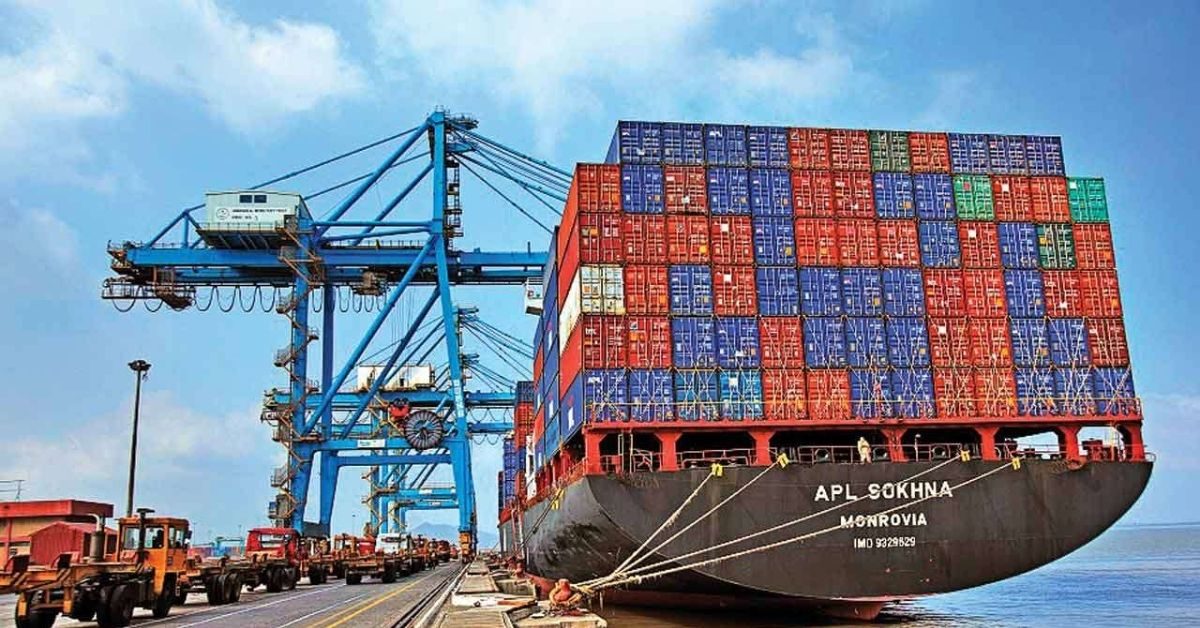The government is set to allow concession in royalty or revenue share payable by private firms handling transhipment and coastal containers at their facilities in Centre-owned major ports, in a policy boost to promote container transhipment and coastal shipping in the country.
The relaxation in payment of royalty or revenue share by public-private-partnership (PPP) operators at major ports on transhipment and coastal containers will be made applicable to existing terminals and upcoming projects, an official briefed on the plan said.
The move will benefit the international container transhipment terminal run by Dubai’s DP World at Vallarpadam in Cochin Port Trust, the only such exclusive facility built at a major port to handle Indian cargo containers that are routed through Colombo or Singapore. It was developed to cut India’s dependence on regional hubs and help save extra time and costs, but has failed to live up to expectations due to water depth constraints and higher rates on vessel related charges, compared to Colombo.
The proposed concession will also help the container transhipment terminal being planned at VO Chidambaranar Port Trust.
Double handling cargo
Transhipment containers are those that arrive at a port on smaller feeder ships, gets unloaded and then loaded onto larger ships for transportation to final destinations. This entails double handling of the same container at the terminal.
Despite the double handling, the government policy currently permits terminals handling a transhipment container to charge such cargo boxes at 1.5 times that of a normal container, instead of double.
For instance, if the handling rate per box is ₹4,000, then instead of charging ₹8,000 for a transhipment container, the terminals are allowed to charge only ₹6,000. But, the contractually mandated royalty or revenue share the terminals are required to pay the government-owned port authority, remains the same. In effect, the terminals have to pay twice on the same container.
In the case of coastal containers (those shipped between two Indian ports), the policy currently allows terminals to charge only 60 per cent of the export-import (EXIM) container, translating into a discount of 40 per cent. For example, if the rate for handling an EXIM container is ₹5,000, a coastal container can be charged only ₹3,000.
But, the share on handing a coastal container has to be paid in full to the port authority, according to contract terms.
Reducing charges
“Because of this structuring of royalty/revenue share payments, the PPP operators are discouraged from handling transhipment and coastal containers,” the official said.
“Hence, the government wants to give concessions to PPP operators in payment of royalty/revenue share on handling transhipment and coastal containers. The idea is to encourage and promote these two cargo categories,” he added.
While the exact quantum of concession is yet to be finalised, the plan under discussion is to peg the royalty to the size of a container: one rate for a 20-foot container, 1.2 times of that for a container between 20 and 40 foot and 1.5 times for a container beyond 40-foot.
For coastal containers, the concession in royalty/revenue share is likely to be kept at 40 per cent on a container, which is the discount in rates now granted for handling such a cargo box.
The move to allow existing and upcoming PPP terminals to pay a lower royalty on transhipment and coastal containers comes on top of another plan to allow such terminals to shift to a market- driven pricing regime from a regulated set-up under a new law passed by Parliament to govern major ports.
Source : The Hindu Businessline






